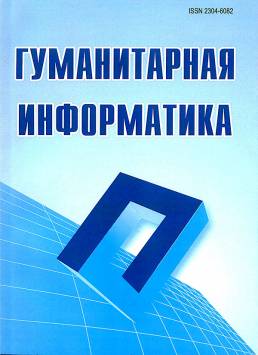New trends in the social structure of the informational society in the context of the precariat theory of Guy Standing
The article is devoted to the changes in the social structure of the information society through the lens of the concept of the precariat as a new social class formulated by the British sociologist Guy Standing. The author clarifies its theoretical and heuristic potential that goes beyond the issues of social stratification in modern society and provides an opportunity to identify new prospects for research of the informational age specifics during the transition from an industrial (good-producing) to a post (service) economy. The topic of the social structure is analyzed not only in terms of economic and technological transformation of the information society, but also in terms of the search of grounds for a new identity, qualitative socio-cultural and anthropological changes associated with the introduction of the precariat. Methodological and theoretical backgrounds for the article are classic studies of the social structure in philosophy and sociology (Karl Marx, Max Weber, Pitirim Sorokin), as well as modern analytics of social reality from the predetermined perspective exemplified in the works of Pierre Bourdieu, Peter Drucker, Vladimir Inozemtsev, Krishan Kumar, Richard Florida, Jürgen Habermas, Arlie Russel Hochschild. The value of the theory by Guy Standing is determined by the fact that the terms he introduced (precariat, a class-in-itself, a class-for-itself) are crucial for describing of actual social processes discussed in the wide social context of institutions (education, politics, power), the stratification system, labor relations. The theory of the precariat has anti-capitalist orientation that allows to deploy its further conceptualization in critical traditions of Marxism and the Frankfurt School. This article draws attention to the conditions of introduction of the precariat: the phenomenon of globalization as a new stage of capitalism, which coincides with the formation of the information society and its tertiary (service) economy, of flexible working schedules, of part-time employment, of labor migration, of the absence of social protection. In the article the characteristics of the precariat, such as an informal class status, the lack of professional self-identity, a limited set of political rights, non-conformist and anarchist sentiments, are highlighted. The reserve for the precariat are migrants, members of the middle and the new creative classes faced with a downward social mobility, bohemians, urban youth received commercialized education that does not provide employment. The concept of Guy Standing is expanded with the ideas of critical philosophy that explores the problem of alienation related to the labor process and society as a whole that eliminates the identity of the individuality due to the commodification of social relations. Labour practices are analyzed in terms of difference between the work as a profit-oriented concept and the work as a process satisfying deep human needs. The article discusses the prospects of turning of the precariat from a class-in-itself to a class-for-itself , associated with the implementation of the post-capitalist project of knowledge societies, which will replace the information, post-industrial society with its contradictions emerged in the era of industrialism. Its prospects are linked with the achievement of universal economic security of employment, obtaining of education in the long term, the connection to the deliberative democracy and ungarbled communication practices in the public sphere. Key words: informational society, globalization, social structure, social stratification, social mobility, classes, precariat.
Keywords
precariat, social mobility, classes, social stratification, social structure, globalization, informational society, прекариат, классы, социальная мобильность, социальная стратификация, социальная структура, глобализация, информационное обществоAuthors
| Name | Organization | |
| Lukina N.P. | National Research Tomsk State University |
References

New trends in the social structure of the informational society in the context of the precariat theory of Guy Standing | Humanitarian Informatics. 2015. № 9.